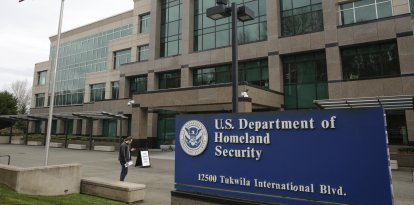Supreme Court weighs whether South Carolina can exclude Planned Parenthood from Medicaid
During the hearing, an attorney for the state argued that Congress "did not use clear rights-creating language in any qualified provider provision" regarding qualified providers in the Medicaid law.

Planned Parenthood clinic in California.
The Supreme Court heard arguments Wednesday over South Carolina's decision to remove Planned Parenthood from its Medicaid state program.
The dispute, which pits the state against patients and the organization, centers on whether the Medicaid Act guarantees beneficiaries the right to freely choose any qualified provider, a debate that has escalated to the nation's highest court after years of litigation.
The case began with an executive order signed by South Carolina Governor Henry McMaster, in which he ordered the state's Department of Health and Human Services to remove abortion clinics, including Planned Parenthood's two in the state, from the list of Medicaid providers.
Although federal law prohibits using Medicaid funds to finance abortions, these clinics offer services such as cancer screenings, pregnancy tests and contraceptives, according to reported Associated Press.
Following the order, Julie Edwards, a Planned Parenthood patient, sued the state along with the organization, arguing that the exclusion violated her rights, according to CBS News. A federal district court barred the move, and the US Court of Appeals for the Fourth Circuit upheld that decision.
During the Supreme Court hearing, an attorney for the state argued that Congress "did not use clear rights-creating language in any qualified provider provision" on qualified providers in the Medicaid Act.
"The provision speaks merely of obtaining a benefit from a third party, unlike traditional rights-creating language which confers a right directly," he said, noting that the law does not use the word "right or its functional equivalent, nor does it use words with a deeply rooted rights-creating pedigree."
However, Judge Elena Kagan questioned this stance: "The state has an obligation to provide this particular thing right, which is the state has an obligation to ensure that a person, I don't even know how to say this line without saying right, has a right to choose their doctor. That's what this provision is. It's impossible to even say the thing without using the word right."
To which the attorney responded, "Well, that language that you're focused on—'may obtain'—is not clear rights-creating language for four reasons." To which Kagan replied, "I don't want four reasons. I want you to answer my question."
The lawyer insisted, "I won't go through my list. There's many reasons why that analysis is wrong, but simply because we understand colloquially that something might be a right doesn't mean that Congress has put a state on clear notice that it could be sued in federal court under 1983 and subjected to liability and attorney fee shifting if it doesn't follow that provision, particularly in a substantial compliance reason."

Society
Missouri prosecutor orders Planned Parenthood to stop abortions with unauthorized drugs
Sabrina Martin
A long judicial journey
In 2024, following a Supreme Court ruling in another case that allowed nursing home residents to sue state health care facilities for civil rights violations, the Fourth Circuit reevaluated its decision.
In March, a three-judge panel ruled unanimously that Edwards' lawsuit could go forward.
Along those same lines, Judge Harvie Wilkinson wrote: "This case is, and always has been, about whether Congress conferred an individually enforceable right for Medicaid beneficiaries to freely choose their healthcare provider. Preserving access to Planned Parenthood and other providers means preserving an affordable choice and quality care for an untold number of mothers and infants in South Carolina."
But, South Carolina petitioned the Supreme Court to review this decision, raising the specific question of whether "the Medicaid Act's any-qualified-provider provision unambiguously confers a private right upon a Medicaid beneficiary to choose a specific provider."
Resolution of this case could determine whether states have the authority to exclude providers like Planned Parenthood from Medicaid on grounds unrelated to their qualification.

























